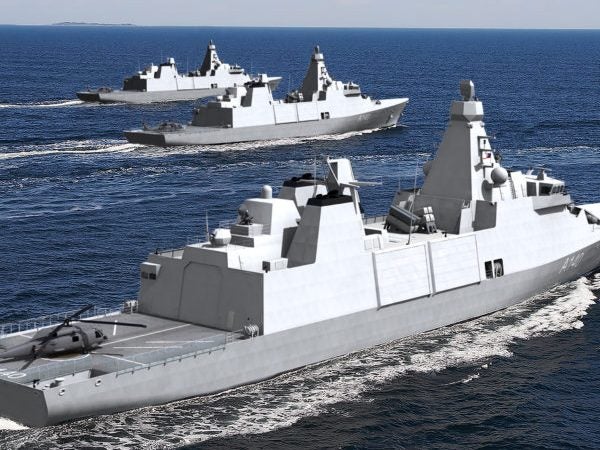
Advancing Naval Technology: The Babcock and Rolls-Royce Partnership
Last Friday, Babcock announced further supply chain details for the UK’s Type 31 frigates, based on the Danish Iver Huitfeldt frigate design, that will replace the some of the Royal Navy’s ageing Type 23 frigates.
Under this latest supply chain announcement, Babcock revealed that Rolls Royce brand MTU will build the ship’s main engines and diesel generators, Renk will supply gearboxes, and MAN energy solutions will manufacture propellers and propeller shaft lines.
Babcock has also drafted in Blunox to supply exhaust environmental equipment to reduce the ship’s emissions. Darchem Engineering is set to supply intake and exhaust systems for the main engines and generators, and Novenco will supply critical components to the ships HVAC system.
Understanding the Type 31 programme
The Type 31 frigate programme is designed to deliver to the Royal Navy five flexible and affordable frigates that, alongside the BAE Systems-built Type 26, will replace the UK’s ageing fleet workhorses, the Type 23s.
While the Type 26 programme will cost £8bn for eight ships, the five Type 31s are being built for £1.25bn with cost savings being found through the reuse of existing ship design in service with the Royal Danish Navy.
The low-cost vessels were commissioned to maintain the size of the UK’s fleet while maintaining a tighter budget and are seen as a solution for operating in lower-end environments, freeing up the Type 26s for more complex missions.
Slightly smaller than the Type 26, the ships being built by Babcock will feature a Thales combat management system, and components largely derived from some companies that worked on the Danish frigate.
The ships are planned to enter service in 2027, four years after their original expected in-service date. The delay to the in-service date was revealed in January 2020, in a letter from the Ministry of Defence (MOD) permanent secretary sent to the UK Parliament’s Public Accounts Committee.
Why use MTU engines?
Rolls Royce MTU brand supplied the four main MTU 20V 8000 M70 diesel engines for the Danish Iver Huitfeldt frigate, making them the clear path forward for the supplying the engines and generators for the UK’s Danish-derived design.
MTU will build the ship’s main diesel engines and generators at its facility in Germany. The company is also manufacturing the diesel generators for the Type 26 programme.
In total across both programmes, MTU is expected to deliver a mix of at least 20 engines and 32 generators to the UK’s shipbuilding efforts.
Executives respond to the deal
Commenting on the supply chain announcements Babcock Managing Director for Energy & Marine Sean Donaldson said: “Team 31 have committed to a programme of investments to deliver prosperity in line with the National Shipbuilding Strategy.
“We are delighted to welcome these key suppliers to the supply chain for the Type 31 frigate programme, and we continue to engage with additional suppliers to support this exciting programme for Babcock and the Royal Navy.”
Rolls-Royce business unit Power Systems head of governmental sales for Europe, Middle East, Africa and Latin America Giovanni Spadaro said: “We are proud that Babcock has chosen our MTU propulsion and power solutions for the prestigious Type 31 project. Rolls-Royce propulsion solutions, including MTU engines, are now widely fitted to major units of the Royal Navy, such as the Astute class of submarines and major surface combatants, which will include the T31 Frigate.
“This is testament to the trust the Royal Navy puts in our products – and their versatility and reliability under the hardest of conditions.”
Babcock company overview and share price
Like many defence contractors, Babcock’s share price has been hit by the spread of the Covid-19 coronavirus pandemic. Since the 31 January, the company’s share value has dropped by 32.3%.
Focusing on the defence, emergency services and civil nuclear sectors Babcock was founded in 1891. The company was a part of the UK’s Aircraft Carrier Alliance to manufacture the two Queen Elizabeth class carriers for the Royal Navy.
In 2019, the company reported an operating profit of £280m and revenue of £4.4bn.



